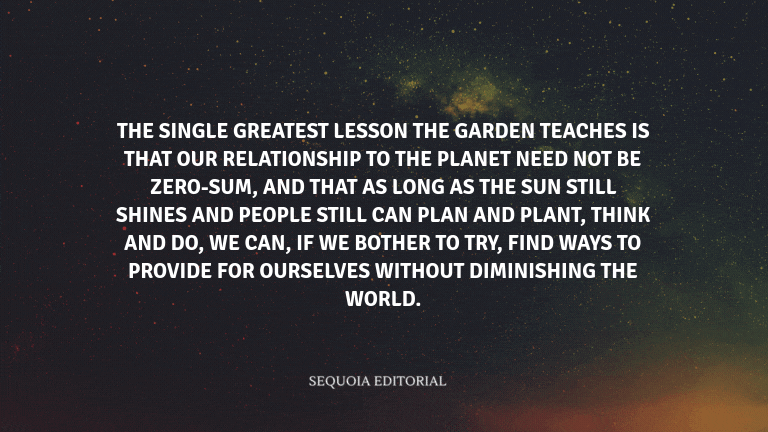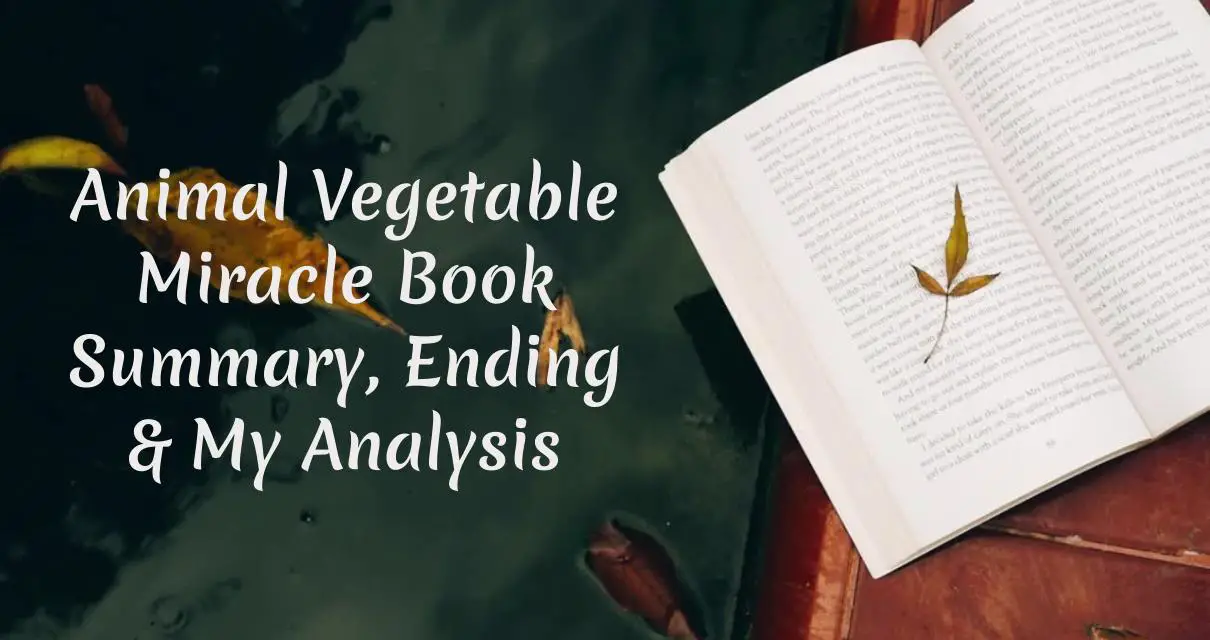Animal Vegetable Miracle is about the Kings, a family that embarks on a year-long experiment to eat only food that is locally grown or produced. This enthralling non-fiction narrative delves into the challenges and triumphs of their journey, and the broader implications for the environment and sustainable living.
Table of Content
Animal Vegetable Miracle Book Summary
Barbara Kingsolver and her family make a life-altering decision to live for a year on their farm in rural Virginia, consuming only food that they have either grown or obtained locally.
They delve into the intricate world of sustainable agriculture, detailing the process of planting and tending to a vast vegetable garden, raising heritage-breed turkeys, and nurturing a flock of chickens.
Throughout the seasons, they confront the challenges of living from the land, such as dealing with pests, preserving the harvest, and the stark reality of slaughtering animals for meat.
The Kings explore their local foodshed, connecting with nearby farmers and artisans who provide them with cheese, fruit, and other culinary staples.
They share their philosophical reflections on food, economics, and the environment. The narrative is interwoven with scientific facts and poignant observations about the modern industrial food system.
The family's year-long journey is not without obstacles. They face the temptation of convenience foods and the frustrations of failed crops.
As the seasons progress, they begin to witness the tangible rewards of their labor, with bountiful harvests and a deepened understanding of the interconnectedness of the natural world.
Barbara, an eloquent storyteller, paints a vivid picture of their experiences, from the jubilation of the first ripe tomato to the sobering realities of peak oil and climate change.
The book is also a call to action. The Kings delve into the politics of food, advocating for local food economies and discussing the impact of food imports on both the environment and human health.
With a mix of humor and gravity, they reflect on the broader implications of their experiment and the urgent need for sustainable living practices.
The family's journey culminates in a celebration of their year's accomplishments, marked by a Thanksgiving feast composed entirely of their own and locally produced foods.
As the year draws to a close, the Kingsolver family emerges transformed, with a profound respect for the land and a commitment to continue their sustainable food practices in the future.
Animal Vegetable Miracle Quotes
- The single greatest lesson the garden teaches is that our relationship to the planet need not be zero-sum, and that as long as the sun still shines and people still can plan and plant, think and do, we can, if we bother to try, find ways to provide for ourselves without diminishing the world.

Animal Vegetable Miracle Ending Explained
At the end of Animal Vegetable Miracle, the Kingsolver family successfully completes their year-long challenge of eating locally and sustainably.
Their final harvest is a testament to the hard work and dedication they have put into their farm and gardens. They reflect on the lessons learned and the impact their experiment has had on their understanding of food and the environment.
The book concludes with a heartfelt Thanksgiving celebration, where they sit down to a table laden with the fruits of their labor, surrounded by friends and family, having achieved a deeper connection to the food they eat and the land it comes from.
Characters in book Animal Vegetable Miracle
- Barbara Kingsolver: The author and narrator of the story, a well-known novelist who takes the lead in documenting her family's year of eating locally.
- Steven L. Hopp: Barbara's husband, a professor of environmental studies, who provides scientific insight and supports the family's efforts.
- Camille Kingsolver: Barbara and Steven's eldest daughter, who is a college student and often contributes to the family's discussions on food and agriculture.
- Lily Kingsolver: The youngest of the Kingsolver children, in high school, who keeps a blog about the family's experiences.
- Other Notable Characters: The book features a range of local farmers, gardeners, and food producers, as well as global figures in the sustainable food movement.
Key Lessons
- The Power of Local Food: By embracing locally grown and produced food, we can support our communities and reduce the environmental impact of the global food system.
- The Value of Seasonal Eating: Eating with the seasons not only provides fresher and more nutritious food, but also fosters an appreciation for the natural rhythms of the Earth.
- The Importance of Food Knowledge: Understanding where our food comes from and how it is produced is crucial for making informed choices that benefit both our health and the planet.
- The Impact of Small-Scale Farming: Small farmers and sustainable agriculture play a vital role in preserving biodiversity, reducing pollution, and maintaining healthy ecosystems.
- The Connection Between Food and Health: A diet of whole, unprocessed foods can have significant positive effects on our well-being and longevity.
My Personal Opinion
Is Animal Vegetable Miracle worth Reading? Totally! I loved the way it combines the personal with the political, and it has inspired me to rethink my own food choices.
I found the book to be a compelling blend of memoir, essay, and science. Kingsolver's narrative is rich with detail, and the deep dive into sustainable agriculture is both enlightening and accessible. However, at times, the book could be seen as too prescriptive, as it strongly advocates for a particular lifestyle without acknowledging the challenges some may face in adopting it.
I would recommend Animal Vegetable Miracle to readers who are curious about the origins of their food and interested in sustainable living. It's especially well-suited for those who enjoy personal narratives that are interwoven with larger social and environmental issues.

